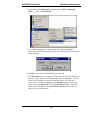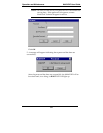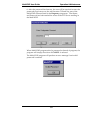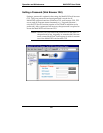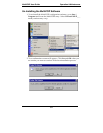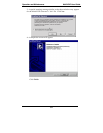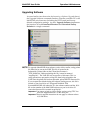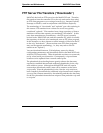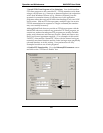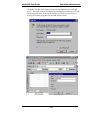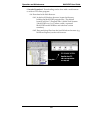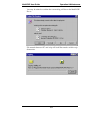
Operation and Maintenance MultiVOIP User Guide
324
FTP Server File Transfers (“Downloads”)
MultiTech has built an FTP server into the MultiVOIP unit. Therefore,
file transfers from the controller PC to the voip unit can be done using
an FTP client program or even using a browser (e.g., Internet Explorer,
Netscape or FireFox, used in conjunction with Windows Explorer).
The terminology of “downloads” and “uploads” gets a bit confusing in
this context. File transfers from a client to a server are typically
considered “uploads.” File transfers from a large repository of data to
machines with less data capacity are considered “downloads.” In this
case, these metaphors are contradictory: the FTP server is actually
housed in the MultiVOIP unit, and the controller PC, which is actually
the repository of the info to be transferred, uses an FTP client program.
In this situation, we have chosen to call the transfer of files from the PC
to the voip “downloads.” (Be aware that some FTP client programs
may use the opposite terminology, i.e., they may refer to the file
transfer as an “upload “)
You can download firmware, CAS telephony protocols, default
configuration parameters, and phonebook data for the MultiVOIP unit
with this FTP functionality. These downloads are done over a network,
not by a local serial port connection. Consequently, voips at distant
locations can be updated from a central control point.
The phonebook downloading feature greatly reduces the data-entry
required to establish inbound and outbound phonebooks for the voip
units within a system. Although each MultiVOIP unit will require
some unique phonebook entries, most will be common to the entire
voip system. After the phonebooks for the first few voip units have
been compiled, phonebooks for additional voips become much simpler:
you copy the common material by downloading and then do data entry
for the few phonebook items that are unique to that particular voip unit
or voip site.




